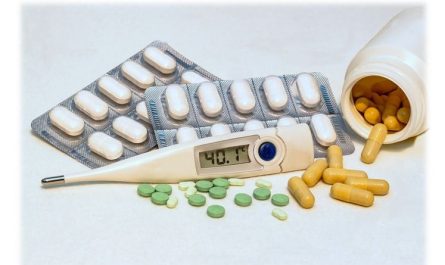There are several over-the-counter medicines that can help relieve flu and cough symptoms. These include.
Acetaminophen or ibuprofen
These pain relievers and fever reducers can help reduce fever and relieve body aches and pains that may accompany the flu and cough.
Cough suppressants
Over-the-counter cough suppressants such as dextromethorphan (Robitussin DM, Delsym) or codeine can help to reduce coughing caused by the flu and cough.
Expectorants
These medicines help to loosen and thin mucus in the airways, making it easier to cough up. Guaifenesin (Mucinex) is a common expectorant that can be used for cough and flu symptoms.
Decongestants
Over-the-counter decongestants such as pseudoephedrine (Sudafed) or phenylephrine (Sudafed PE) can help to relieve nasal congestion caused by the flu and cough.
It’s important to read the labels and follow the instructions on these medicines carefully, and to avoid using multiple medicines that contain the same ingredients. Additionally, it’s important to stay hydrated, get plenty of rest, and practice good hygiene to help reduce the duration and severity of flu and cough symptoms. If your symptoms do not improve after a few days or if you have any concerns, it’s important to seek medical advice from a healthcare provider.
What are Acetaminophen?
Acetaminophen is a medication commonly used to relieve pain and reduce fever. It is available over-the-counter and by prescription, and is sold under various brand names, such as Tylenol and Panadol.
Acetaminophen works by inhibiting the production of prostaglandins, which are chemicals that cause pain and fever in the body. By reducing the production of these chemicals, acetaminophen can help to relieve pain and reduce fever.
Acetaminophen is commonly used to treat a variety of conditions, including headaches, muscle aches, toothaches, menstrual cramps, and arthritis. It is generally considered safe when used as directed, but can cause liver damage in high doses or when used for extended periods of time.
It’s important to read the labels and follow the instructions on acetaminophen-containing medicines carefully, and to avoid using multiple medicines that contain acetaminophen. Additionally, it’s important to talk to a healthcare provider before taking acetaminophen if you have liver disease or a history of alcohol abuse.
What are Cough Suppresants?
Cough suppressants are medications that are used to relieve coughing. They work by blocking the cough reflex in the brain, which can help to reduce the frequency and severity of coughing.
The most common active ingredient in cough suppressants is dextromethorphan (DM), which is often combined with other ingredients to provide additional relief for cough symptoms. Cough suppressants are available over-the-counter in various forms, such as syrups, tablets, and lozenges.
Cough suppressants are generally recommended for dry coughs that do not produce mucus. If you have a cough that is producing mucus, it is usually not recommended to use a cough suppressant, as coughing is a natural way for the body to clear the mucus from the airways.
It’s important to read the labels and follow the instructions on cough suppressant-containing medicines carefully, and to avoid using multiple medicines that contain the same active ingredient. Additionally, it’s important to talk to a healthcare provider before taking cough suppressants if you have a history of asthma, chronic bronchitis, or other respiratory problems.
What are Expectorants?
Expectorants are medications that are used to help loosen and thin mucus in the airways, making it easier to cough up and clear from the body. They work by increasing the amount of water in the respiratory tract, which helps to thin the mucus and make it less sticky.
The most common active ingredient in expectorants is guaifenesin, which is available over-the-counter in various forms, such as syrups, tablets, and capsules. Expectorants are typically used to treat coughs that are accompanied by congestion and thick mucus, such as those caused by colds, flu, or bronchitis.
It’s important to read the labels and follow the instructions on expectorant-containing medicines carefully, and to avoid using multiple medicines that contain the same active ingredient. Additionally, it’s important to talk to a healthcare provider before taking expectorants if you have a history of asthma, chronic bronchitis, or other respiratory problems, or if you are pregnant or breastfeeding.
What are Decongestants?
Decongestants are medications that are used to relieve nasal congestion and reduce swelling in the nasal passages. They work by narrowing the blood vessels in the nasal membranes, which helps to decrease the amount of fluid and mucus in the nasal passages and improve breathing.
The most common active ingredients in decongestants are pseudoephedrine and phenylephrine, which are available over-the-counter in various forms, such as tablets, capsules, and nasal sprays. Decongestants are typically used to treat nasal congestion caused by colds, flu, allergies, and sinus infections.
It’s important to read the labels and follow the instructions on decongestant-containing medicines carefully, and to avoid using multiple medicines that contain the same active ingredient. Additionally, decongestants can have side effects, such as increased blood pressure, heart rate, and insomnia, so it’s important to talk to a healthcare provider before taking decongestants if you have a history of heart disease, high blood pressure, or other medical conditions.
How to prevent Flu and Cough:
There are several ways to help prevent flu and cough, including:
Get vaccinated
The most effective way to prevent the flu is to get an annual flu vaccine. The vaccine is recommended for everyone over the age of six months, particularly for those at high risk of complications from the flu, such as pregnant women, young children, and older adults.
Practice good hygiene
Wash your hands frequently with soap and water for at least 20 seconds, especially before eating or touching your face. Cover your mouth and nose with a tissue or your elbow when coughing or sneezing, and avoid close contact with people who are sick.
Stay home when sick
If you have flu or cough symptoms, stay home to avoid spreading the illness to others.
Maintain a healthy lifestyle
Eat a healthy diet, get regular exercise, and manage stress to help keep your immune system strong and reduce your risk of getting sick.
Use a humidifier
Dry air can irritate the throat and lungs, making you more susceptible to coughs and respiratory infections. Using a humidifier can help keep the air moist and prevent coughs and other respiratory problems.
Avoid smoking and exposure to secondhand smoke
Smoking and exposure to secondhand smoke can damage the lungs and make you more susceptible to respiratory infections.
By taking these steps, you can help reduce your risk of getting the flu and cough, and help protect yourself and those around you from these illnesses.




